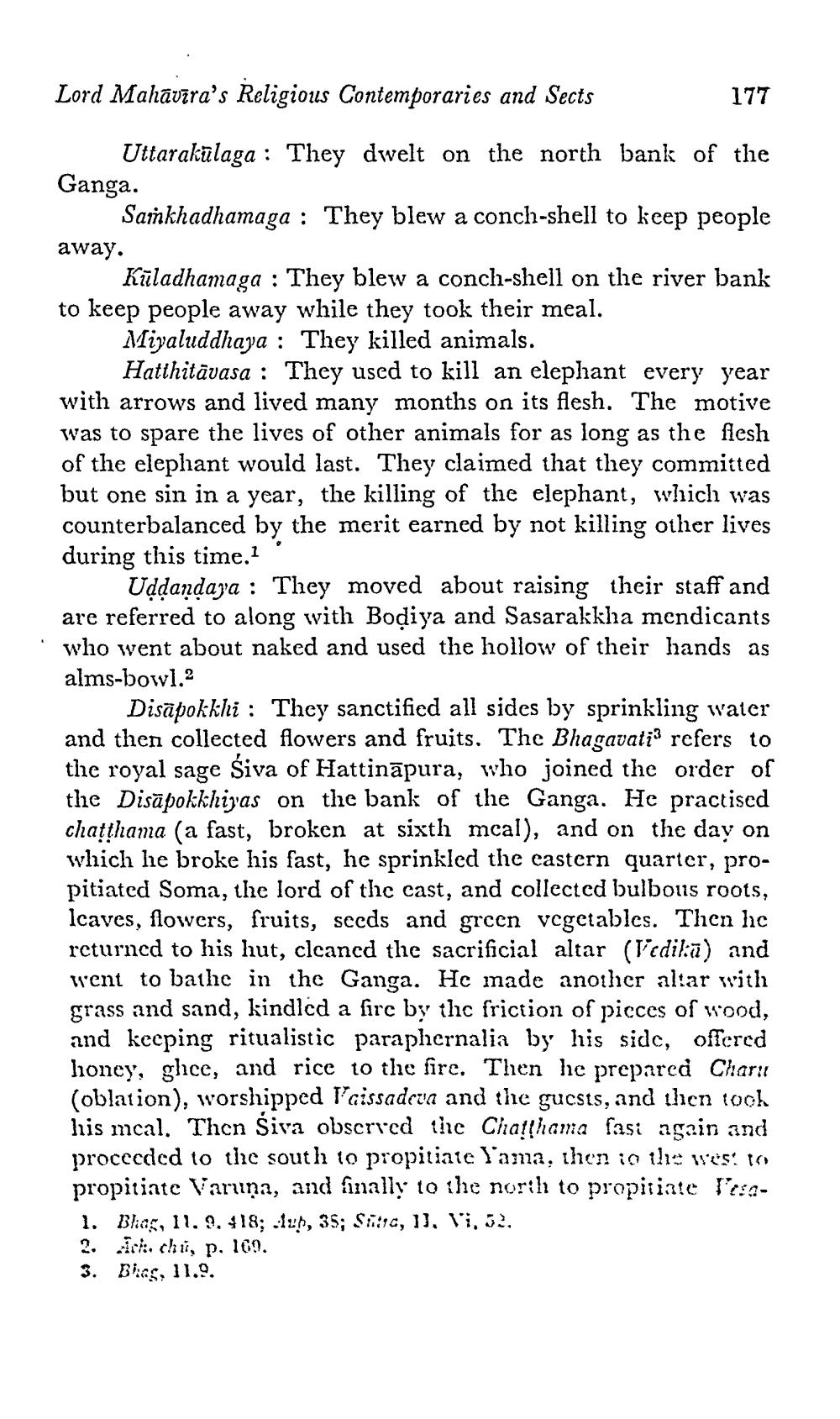________________
Lord Mahāvīra's Religious Contemporaries and Sects
177 Uttarakūlaga : They dwelt on the north bank of the Ganga.
Samkhadhamaga : They blew a conch-shell to keep people away.
Küladhamaga : They blew a conch-shell on the river bank to keep people away while they took their meal.
Miyaluddhaya : They killed animals.
Hatthitāvasa : They used to kill an elephant every year with arrows and lived many months on its flesh. The motive was to spare the lives of other animals for as long as the flesh of the elephant would last. They claimed that they committed but one sin in a year, the killing of the elephant, which was counterbalanced by the merit earned by not killing other lives during this time.
Uddandaya : They moved about raising their staff and are referred to along with Bodiya and Sasarakkha mendicants who went about naked and used the hollow of their hands as alms-bowl.?
Disāpokkhi : They sanctified all sides by sprinkling water and then collected flowers and fruits. The Bhagavati: refers to the royal sage Śiva of Hattināpura, who joined the order of the Disāpokkhiyas on the bank of the Ganga. He practised chatthama (a fast, broken at sixth mcal), and on the day on which lie broke his fast, he sprinkled the castern quarter, propitiated Soma, the lord of the cast, and collected bulbous roots, Icaves, flowers, fruits, seeds and green vegetables. Then he returned to his hut, cleaned the sacrificial altar (V'edikū) and went to bathe in the Ganga. He made another altar with grass and sand, kindlcd a fire by thc friction of picces of wood, and keeping ritualistic paraphernalia by his side, offered honey, ghee, and rice to the fire. Then he prepared Chart (oblation), worshipped l'aissadeva and the guests, and then took his mcal. Then Siva observed the Chatļhama fasi again and procecded to the south io propitiate lama, then in the West in propitiate Varuna, and finally to the north to propitiate Vera1. Blas, 11. 2. 418; 12.5, 35; S:6, 11, Vi, 32. 2. Mick chi, p. 10!. 3. Bias, 11.9.




